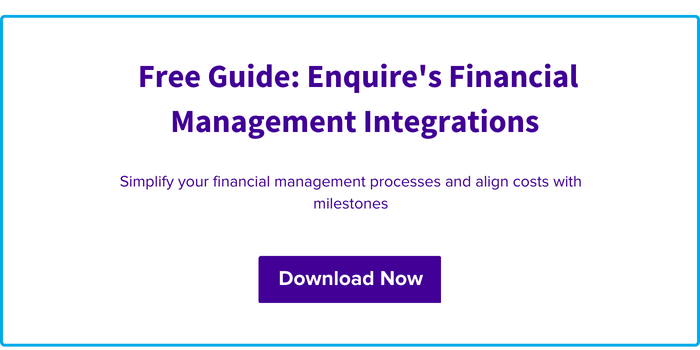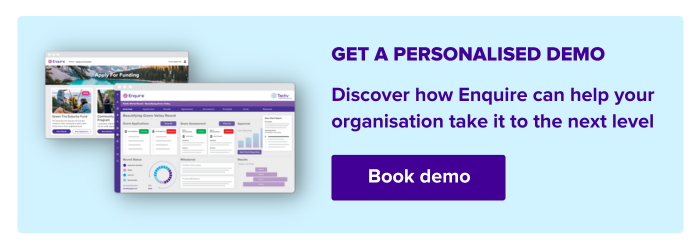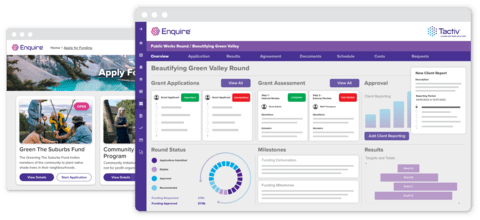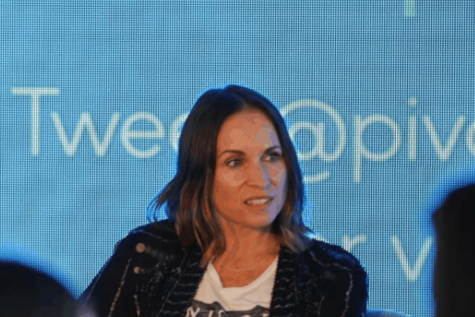On the surface, it might look like admin: apply for funding, tick off milestones, submit reports. However, in practice, this is research management. You’re managing research grants—from identifying the right opportunities to delivering on funding obligations—which means navigating governance requirements, coordinating teams, keeping spending on track, and ensuring that nothing falls through the cracks.
That’s who this guide is for: Research managers and administrators who are responsible for delivering on the terms of awarded grants. You’re not setting the funding strategy or reviewing applications—you’re the one making sure that what was promised in the grant gets delivered, in full and on time.
We’ll unpack the key components of this post-award grant management role—touching on everything from internal approvals to outcome reporting—and show you how to reduce the risks that can lead to funding loss, compliance breaches, or sleepless nights. Because this isn’t just paperwork, it’s operational rigour. It’s accountability. And when it’s done well, it’s what keeps your institution’s research program running smoothly.
Let’s get into it.
Key takeaways
- Research grant management goes beyond admin — it’s about safeguarding funding, ensuring compliance, and enabling research to run smoothly across teams.
- Core responsibilities include identifying the right funding opportunities, coordinating applications, overseeing governance, tracking budgets and milestones, and managing reporting.
- Common challenges include finding suitable grants, aligning applications to funder requirements, delays in milestones, and visibility gaps that make compliance hard to monitor.
- If you’re new to the role, start by building visibility: gather key information, organise grant records, and create simple systems to keep things moving and accountable.
What is research management? Its key components and why managing grants well is critical
Research management involves coordinating activities that support the planning, delivery, and oversight of research projects. It includes everything from sourcing funding and supporting applications to navigating governance requirements, tracking performance, and ensuring accountability.
Within that, research grant management refers explicitly to overseeing the funding side of research, ensuring grants are applied for, accepted, administered, and closed out in accordance with funder obligations. It includes application support, budget tracking, milestone reporting, compliance oversight, and internal approvals.
Managing research grants is where these responsibilities come into sharp focus. Once a grant is awarded, research managers play a crucial role in ensuring the institution delivers on its promises—on time, within budget, and in full compliance with the funder’s expectations.

The key components of managing research grants
The following components reflect the day-to-day work that keeps funding on track and risk in check. While they don’t always follow a linear path, each plays a vital role in the post-award process.
1. Identifying suitable grant opportunities
Before the application even begins, research managers often play a key role in scanning the funding landscape. This means:
- Keeping track of relevant funding bodies in their field or institution
- Understanding upcoming funding rounds and eligibility criteria
- Matching grant opportunities to researchers or departments
In some cases, researchers adjust their project focus to align with available funding. In others, it’s about finding the right funding for the research already underway. Research managers often support both approaches, especially in large institutions where scholarship and early-career funding streams also need oversight.
2. Coordinating the application process
Applications can be as intensive as tenders, especially when they involve external partners, co-investments, or multi-institutional projects. Research managers often:
- Liaise between the researcher and the institution’s internal systems (legal, finance, ethics, etc.)
- Track deadlines, submission formats, and eligibility documents
- Support the development of the application, including budgets, Gantt charts, and statements of impact
- Ensure required internal approvals are obtained before submission
Some institutions have formal grant development teams, while others rely heavily on research managers to coordinate this entire process.
3. Ensuring robust governance and compliance
Once a grant is awarded, recipients sign a formal agreement that outlines how the funds will be used and the obligations that must be met. Research managers are responsible for ensuring:
- The project complies with institutional governance policies
- Funds are used in line with the contract (e.g. for approved activities only)
- All ethical and legal approvals (e.g. human/animal ethics, data sharing, COI) are obtained and maintained throughout the grant period
Non-compliance—even unintentional—can trigger audits, funding clawbacks, or reputational damage.
4. Budget and financial management
Research managers work closely with finance teams to:
- Align the grant budget with the project plan
- Monitor cash flow and actuals against budget forecasts
- Approve or escalate variations when the spend needs to shift
- Ensure funders’ rules are followed when hiring, purchasing, or subcontracting
- Prepare data for interim and final financial acquittals
Some grants release funds in tranches based on progress, so accurate financial oversight is critical to avoid disruptions.
5. Tracking outputs, outcomes, and impact
Grant recipients are expected to demonstrate progress and impact, not just activity. This means research managers often need to:
- Collect data on outputs (e.g. publications, datasets, patents), outcomes (e.g. community impact, policy influence), and performance against KPIs
- Coordinate regular progress reporting back to the funder (sometimes quarterly, annually, or at fixed milestones)
- Ensure a final acquittal report includes both financials and narrative outcomes
- Adapt plans based on what’s working—often negotiating variations with funders if needed
The challenge isn’t just capturing the data—it’s building repeatable systems that allow teams to report accurately across multiple grants.
Together, these components form the foundation of successful research grant management. The work is detailed and sometimes invisible, but it’s what enables funding to flow, research to progress, and institutions to deliver on their promises.
“We often hear from funding organisations that they want to make things easier for their grant recipients. But many are still stuck using emails, PDFs, and manual approvals. The work gets done, but it’s hard to keep track of it all, and that adds to the admin load. With the right tools, funders can simplify how they manage and distribute research funding — and make it easier for research managers to communicate, stay on top of progress, and show the impact they’re making.”
Sarah James, Product Manager at Tactiv
Why it matters: What’s at stake when grants aren’t managed well
Now that we’ve broken down what grant management involves, it’s worth stepping back to look at why it matters, because the risks of getting it wrong can be significant.
Research grants aren’t just line items in a budget or tick-box exercises in compliance. They’re the engine behind breakthroughs: new treatments, public health policies, social impact programs, and scientific discoveries. Every grant awarded to your institution represents a promise—to a funder, to the public, and to the research team delivering the work.
And every dollar comes with conditions. Whether you’ve received funding from a government body, philanthropic organisation, or industry partner, the expectation is the same: the money must be used exactly as intended, within the timelines and boundaries set out in the agreement.
And that’s where things get complex, because even minor missteps in managing a grant can have serious consequences.
Let’s take a closer look at what can go wrong—and why your role is central to preventing it.
1. Compliance breaches can lead to serious fallout
Even well-intentioned teams can overlook ethics renewals, conflict-of-interest updates, or variation approvals, and that can lead to breaches of grant agreements.
A 2020 Queensland Crime and Corruption Commission report highlighted misuse of research funds and falsification as real and systemic risks in university settings. The big lesson? Compliance isn’t just policy—it’s protection.
2. One poorly managed grant can affect future funding
Funders expect clarity, communication, and accountability. Repeated milestone delays, missing reports, or unclear budget use create distrust and reputational risk. For multi-year schemes, especially, one grant misstep can influence funding bodies’ future assessments or even affect co-investment partnerships.
3. Audit readiness isn’t optional
Most publicly funded research programs are subject to internal and external audit; however, Australian audit reports consistently show weaknesses in grant administration. For example, ANAO’s 2024 insight found that 56% of Commonwealth entities were not fully meeting grants administration standards, often due to missing documentation or inadequate monitoring.
4. Internal capacity gets overwhelmed
Studies of research administrators have documented increased stress, burnout, and role overload—often tied directly to the administrative demands of coordinating approvals, reports, and compliance. Instead of strategic grant support, you end up with email chains, Excel sheets, and last-minute scrambling to fix compliance gaps or submit overdue reports.
5. Missed opportunities = lost impact
Underspending a grant may sound harmless, but it can signal poor project planning. Delayed payments due to missing milestones mean research can’t move forward on time. A variation not submitted might prevent hiring a postdoc. An unused equipment budget might close before procurement clears. These aren’t admin delays—they’re lost outcomes.
When done well, research grant management enables trust, impact, and long-term funding stability. When mishandled, it puts all three at risk.
Mapping the research grant lifecycle: A framework for focus
When you’re juggling multiple grants—each at different stages—it’s easy to feel pulled in every direction. One application is due next week. Another project is approaching its milestone review. A third is overdue on its acquittal report.
That’s where understanding the grant lifecycle becomes powerful. It’s not just theory—it’s a way to anchor your work, prioritise effectively, and build repeatable systems across your grant portfolio.
Here’s how the research grant lifecycle typically unfolds—and where your attention matters most at each stage:
| Stage | What happens | Your focus as a grant manager |
|---|---|---|
| Pre-award | Identify opportunities, assess eligibility, support application preparation | Scanning funder landscape, coordinating applications, aligning with internal approvals |
| Award | Finalise agreements, confirm budgets, navigate governance requirements | Reviewing contracts, confirming ethics and COI, onboarding internal teams |
| Post-award | Monitor milestones, manage budget variations, track outputs and KPIs | Maintaining compliance, financial tracking, collecting data for reporting |
| Close-out | Submit final reports, acquit finances, archive documentation | Ensuring all deliverables are complete, acquittals are submitted, and records are audit-ready |
Some tasks span multiple stages, like tracking ethics compliance or liaising with finance. But by viewing your responsibilities through this lifecycle lens, you can anticipate what’s coming, reduce duplication, and avoid last-minute scrambles.
And when things inevitably get busy, this view helps you focus on the right risks at the right time.
The most common frustrations (and what causes them)
Just because you have funding secured doesn’t mean things suddenly get easier.
In fact, this is when many research managers hit their most frustrating roadblocks—not because the work isn’t important, but because the systems around them weren’t designed to support it. You’re expected to keep funding on track, report on progress, and manage compliance, while chasing inputs across busy teams, clunky systems, and tight timelines.
These are the common pressure points we hear time and again:
1. Endless internal approvals slow everything down
Before you can spend a dollar of your grant, you need approvals from internal finance, legal, or ethics teams. Each step takes time, and without a clear escalation path or system for tracking, you’re stuck in limbo, delaying research start dates, procurement, or hiring.
2. Juggling too many deadlines across too many systems
Milestone reports, ethics renewals, spending updates—each funder has their own cadence. Add in internal reviews, researcher delays, and external dependencies, and suddenly you’re managing a dozen Gantt charts in a spreadsheet you don’t trust.
Even when researchers are doing the work, the burden of coordinating and consolidating progress often lands on your plate, with little visibility into what’s happening until something is already late.
3. Compliance is scattered, not systematised
COI declarations, ethics approvals, and contractual obligations all need to be maintained, but there’s no single source of truth. You rely on memory, inbox searches, or separate systems for different grants. The risk isn’t just human error—it’s audit exposure and reputational damage.
➔ Want to know more about compliance in grant and fund management? Read it here
4. Reporting becomes a last-minute scramble
You need to report not just on what was spent, but what was delivered. That includes tracking outcomes, aligning KPIs, and telling a coherent impact story. However, with data scattered across researchers, finance, and administration, the final acquittal can feel like a rushed group assignment.
5. No breathing room to improve things
You’re so busy keeping the wheels turning that there’s no time to improve processes. This leads to burnout, rework, and dependency on specific people just to keep things afloat. Instead of scalable systems, you have institutional memory, and that’s hard to transfer or train.
The good news? These frustrations aren’t just personal—they’re systemic. And that means they’re solvable. In the next section, we’ll look at how better systems can move you out of constant reactivity and into a more proactive, manageable way of working.
From firefighting to foresight: Building systems that protect your time and your funding
Once you’ve stabilised your immediate environment, the next step is moving out of reactive mode. Constantly chasing reports, patching gaps, or fixing last-minute errors isn’t sustainable, and it’s not the best use of your time.
What you need are systems that make the work lighter, not heavier.
Start small: Build clarity into everyday workflows
You don’t need a major system overhaul to reduce the chaos. The right low-effort changes go a long way.
These basics set the foundation for stronger, repeatable processes—and save time when things scale.
| Quick wins | Why it helps |
|---|---|
| Consistent file naming | Makes records easy to find, even under pressure |
| Shared decision log | Keeps track of who approved what, and when |
| Pre/post/close-out checklists | Reduces missed steps and duplication |
| Clear version control | Prevents submission errors and confusion |
Spot where the cracks are forming
Start noticing where manual processes are letting you down:
- Reports go missing because there’s no follow-up system
- Ethics forms stall because approvals aren’t tracked
- Milestones get delayed, but no one realises until it’s too late
Log these moments. They’ll form the basis for what to fix—and help build your case for longer-term improvements.
How to build the case for change (without burning out)
If you’ve read this far, you already know more than most.
You’ve mapped the mess, stabilised what you could, and started building a structure around the work. You might not control the budget or the tech stack, but you’re the one who sees the risks up close: missed deadlines, scattered decisions, rising admin burden.
That perspective is valuable. It’s what drives meaningful, lasting change.
And change is coming—fast. Across the sector, funders are adopting more sophisticated systems to track outcomes, flag risks, and streamline approvals. The expectations around reporting, compliance, and governance are only getting tighter.
Which raises a simple question: Is your current setup ready for that shift?
And here’s the thing: You don’t need a formal business case to start a conversation. You just need evidence of where things are slowing you down or putting funding at risk.
- How often do reports come in late or incomplete?
- Where are decisions undocumented or hard to trace?
- Which compliance steps feel reactive or unclear?
If you’re spending more time chasing data than managing strategy, you’re not alone. But there is another way. Take the Heart Foundation, a major funder, for example. By using Tactiv to manage complex, multi-year grant programs, they’ve made it easier for recipients to meet governance requirements, track milestones, and submit reports on time and in the right format.
- Reduced administrative burden across teams
- Automated key compliance and reporting checkpoints
- Gained real-time visibility into milestones, risks, and spend
- Standardised decision-making and documentation for audit-readiness
And they’re not alone. As more funders modernise their systems, it’s becoming critical for recipients to follow suit, so everyone is working from the same playbook.
Ready to see what’s possible?
Tactiv’s research grant management platform is built to support the full funding lifecycle—from application to acquittal. Whether you’re managing a few grants or scaling a national program, we help you stay compliant, reduce friction, and bring clarity to every stage of your process.
Book a demo to see how Tactiv can help your team stay ahead—without burning out.


